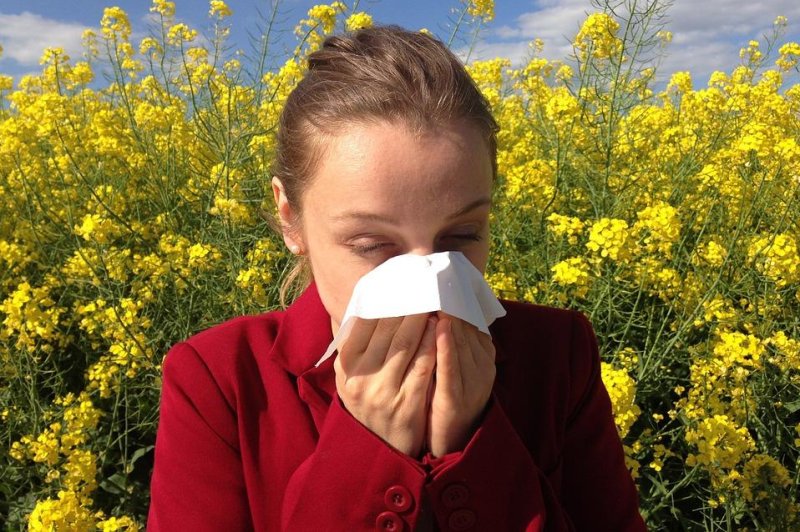Research shows a new cancer drug has the potential to prevent reactions to common airborne allergens. Photo by
cenczi/PixaBay
May 22 (UPI) -- A new cancer drug may provide significant reduction in allergic reactions in people with airborne seasonal allergies, according to a new study.
Researchers at Northwestern University have made a surprising discovery with the FDA-approved drug ibrutinib, a new drug that is a less-toxic alternative than chemotherapy for patients with chronic lymphocytic leukemia and mantle cell lymphoma.
In a small pilot study, two patients qualified out of 35 who were treated with ibrutinib for cancer and had allergies.
Researchers conducted allergy testing on patients prior to taking ibrutinib, one week after starting treatment and one to two months into the treatment. They found that patients who are allergic to cat dander and ragweed saw their skin test reactivity reduced by 80 percent to 90 percent in one week, an effect that continued for up to two months after starting ibrutinib.
"It almost completely knocked out the patients' skin test and blood cell allergic reactivity," Dr. Bruce Bochner, professor of medicine at Northwestern University Feinberg School of Medicine, said in a press release.
Bochner said he knew the well-tolerated cancer drug was successful at blocking a protein inside a cell known as Bruton's Tyrosine Kinase, or BTK, which plays a critical role in B cell activation, growth and maturation and mast cell and basophil activation. Mast cell and basophil are known to be responsible for immediate allergic reactions.
"Preventing or lessening the severity of an allergic reaction to a food you've ingested that you're allergic to is kind of the holy grail of food allergy treatment," Bochner said. "I don't know if this or similar drugs will ever make it possible for a peanut-allergic person to eat peanut butter and jelly sandwiches, but we're excited to use this approach to teach us how to lessen the risks of food allergy reactions."
The study is being expanded to adults with food allergies to see if their skin tests and basophil activation test responses show the same reduction with the use of iburtinib.
The study was published in the Journal of Allergy and Clinical Immunology.















